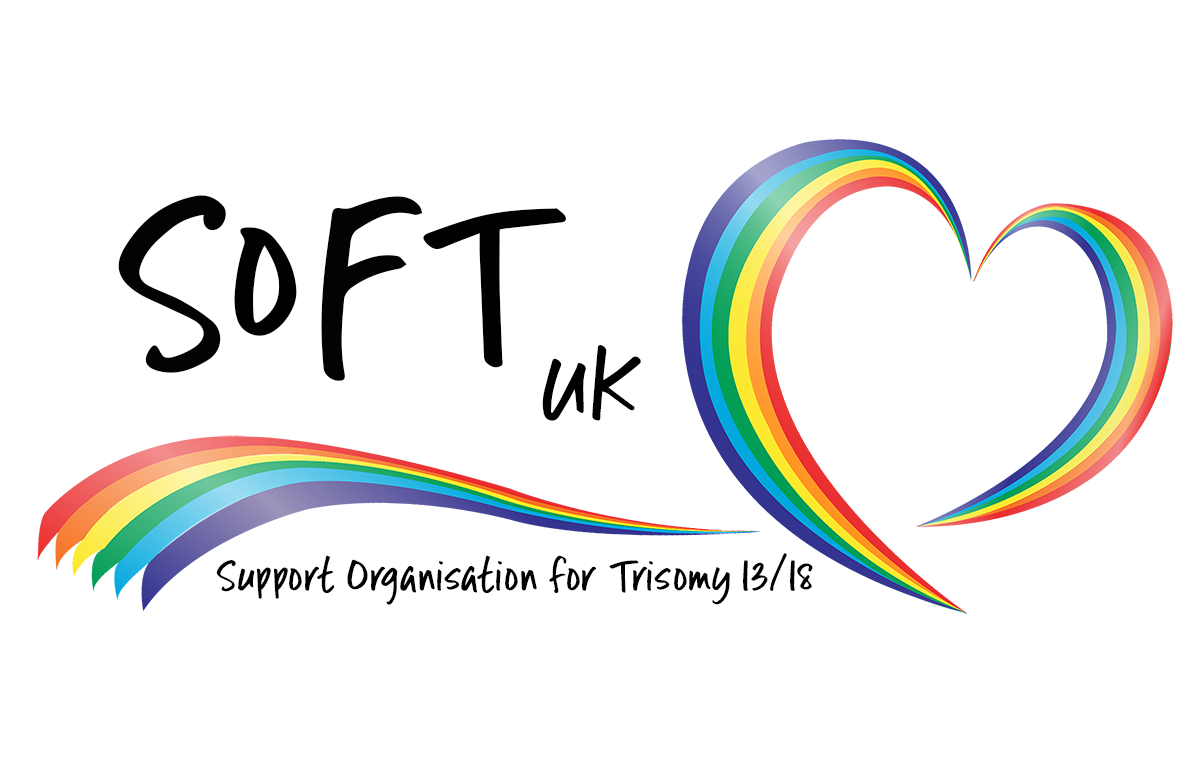What is Trisomy 18?
Trisomy 18 (Edwards' syndrome) is a genetic condition caused by the presence of an extra chromosome in the body’s cells. This extra genetic material affects foetal development.
For further information click here.
How many babies are affected?
About 1 in every 1,500 pregnancies is diagnosed with trisomy 18. It is the most common autosomal trisomies after trisomy 21 (Down's syndrome).
In England and Wales between 2004 and 2011, there were 4,028 diagnosed cases of trisomy 18.
In the same 8 year period, 372 babies with trisomy 18 were born alive.
(National Down Syndrome Cytogenetic Register).
How does Trisomy 18 affect an individual?
Trisomy 18 is associated with a range of specific physical features. It is unlikely that a baby would be born with ALL the complications, but more common they would have several indicators from the list that would point to a Trisomy 18 diagnosis:
prominence of the rear of the head
short eyelid fissures
small mouth and jaw
external ear variations
clenched fist with overlapping fingers
underdeveloped thumbs
short breastbone
club feet
extra skin at the rear of the neck
cleft lip and/or palate
Trisomy 18 is also associated with some specific medical complications:
Approximately 90% of children will have a congenital heart defect
Feeding difficulties
Apnoea or epilepsy
Scoliosis
All children with Trisomy 18 will be affected by developmental delay.
SOFT US provide an excellent factsheet summary on Trisomy 18.
Trisomy 18 and Life Expectancy
Trisomy 18 is a life-limiting condition and affects how long a baby is expected to survive.
Around seventy percent of pregnancies diagnosed with Trisomy 18 at 12 weeks will end in miscarriage or stillbirth. This percentage decreases as the pregnancy progresses, which means that the longer your pregnancy lasts the more chance you have of your baby being born alive. There is a higher risk of losing a male foetus than a female foetus with this condition. The reason for this is not known. There is also an increased risk of the baby not surviving delivery, which is something you may wish to discuss with your medical team. (Morris JK, Savva GM, 2008)
Babies born with Trisomy 18 will often, but not always, require specialist medical care. Sadly most babies will die during their first year of life. The most recent research found survival rates for Trisomy 18 at 13.5% at 1 year and 12.3% at 5 years old. (Meyer et al 2016)
This research also shows an increased survival rate where children have received medical interventions.
For more information, click here.
What is the risk of a future pregnancy being affected?
If you are planning a future pregnancy, you may wish to discuss this with a healthcare professional.
Although in most cases Trisomy 18 is not inheritable, each family's circumstances will be different and a professional that knows you individually can best advise on this.
Full Trisomy 18 is rarely inherited, but the risks can be higher for related forms of the condition.
Maternal age is known to be a risk factor for Trisomy 18, which is common in many genetic conditions.
There is a small increased risk of a future pregnancy with the same Trisomy or another Trisomy after a Trisomy 13 pregnancy. The reason for this is not known.

